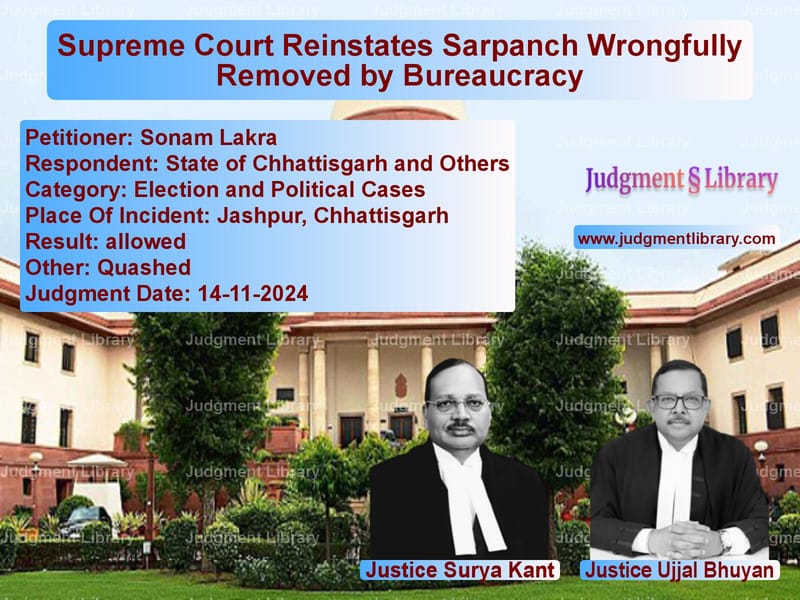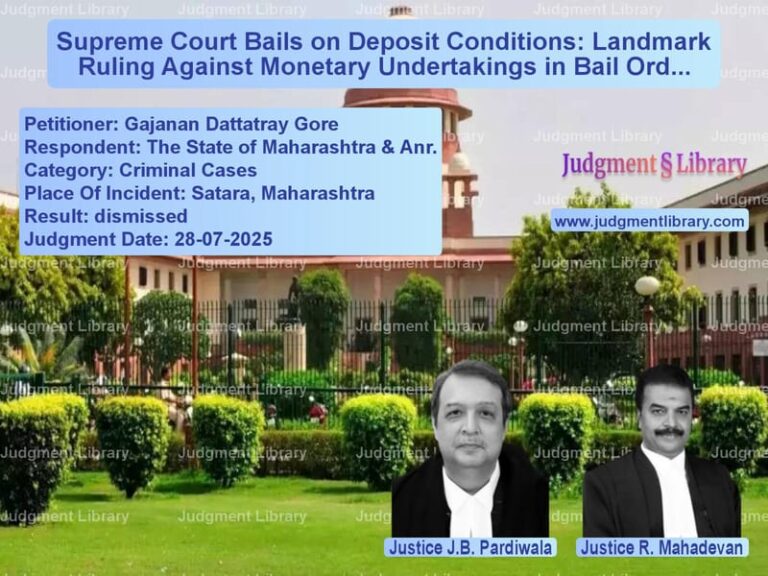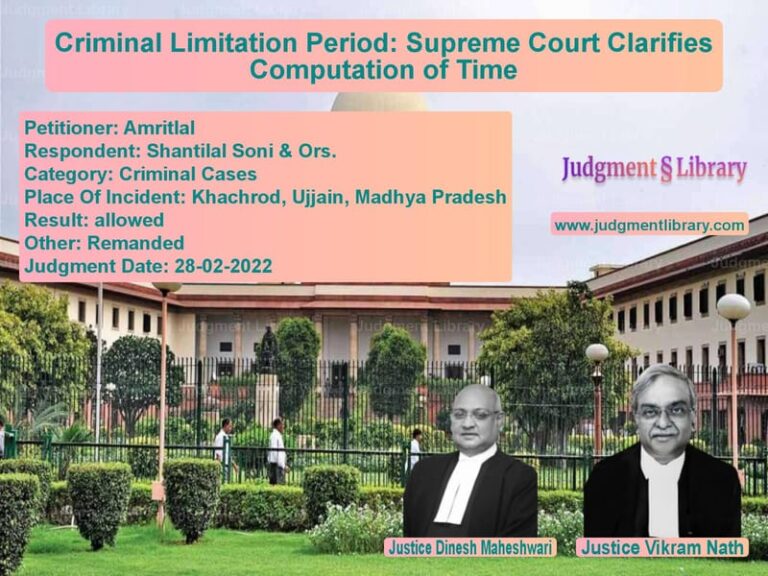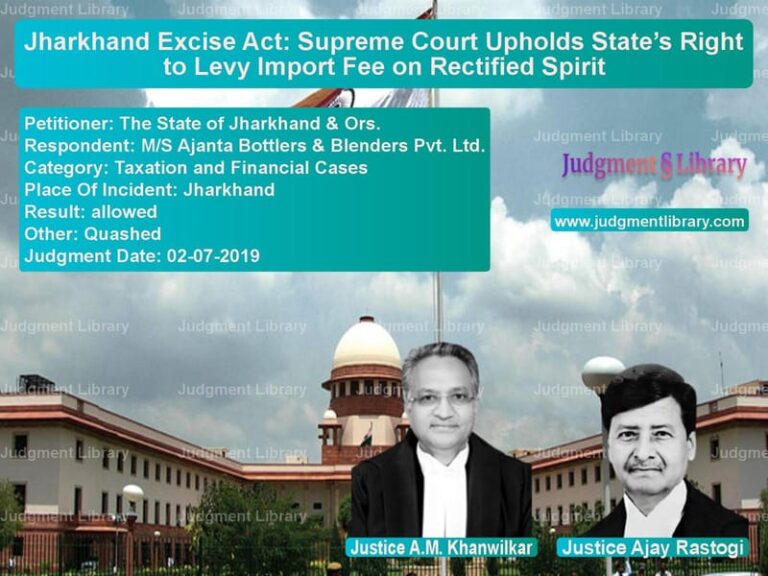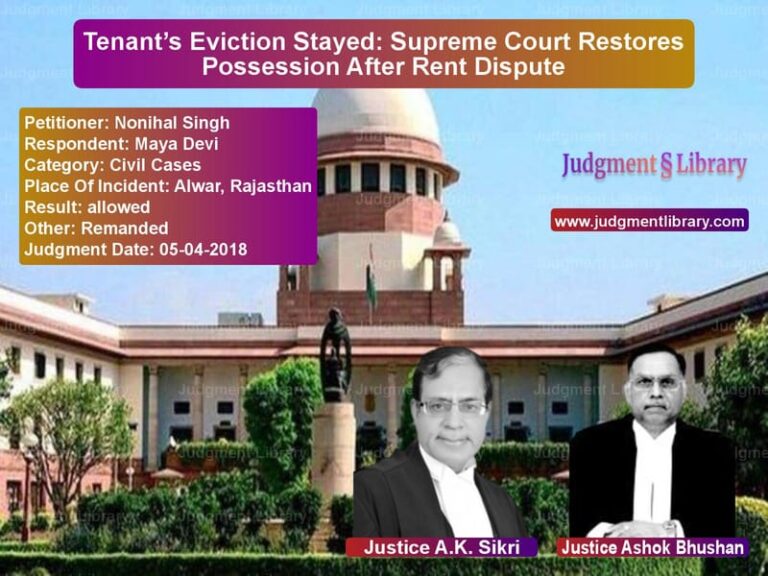Supreme Court Reinstates Sarpanch Wrongfully Removed by Bureaucracy
The Supreme Court of India has ruled in favor of Sonam Lakra, a young woman who was unlawfully removed from her position as Sarpanch of Sajbahar Gram Panchayat in District Jashpur, Chhattisgarh. The case highlights the persistent issue of bureaucratic overreach and administrative high-handedness in local governance, particularly against elected female representatives.
Background of the Case
Sonam Lakra, a 27-year-old woman dedicated to improving grassroots democracy, was elected as Sarpanch of her village in 2020. During her tenure, she initiated several development projects under the Mahatma Gandhi Rural Industrial Park Scheme (RIPA), aimed at enhancing infrastructure, roads, and schools.
However, despite her efforts, she faced administrative hurdles that culminated in her removal. The Chief Executive Officer of the Janpad Panchayat issued a Work Order on December 16, 2022, requiring the completion of development works within three months. Shockingly, this Work Order was belatedly served to the Gram Panchayat only on March 21, 2023—after the stipulated period had already elapsed.
Subsequently, a Show-Cause Notice was issued against her on May 26, 2023, followed by a chargesheet, blaming her for delays in construction work. Despite her clarifications, the authorities persisted with bureaucratic overreach, leading to her removal from office on January 18, 2024. Her attempts to seek redress at higher administrative levels and the High Court were rejected.
Supreme Court’s Observations
The Supreme Court, upon hearing the case, made scathing remarks on the conduct of the administrative authorities. The key observations included:
- The case was a clear example of “administrative imperiousness,” wherein a dedicated elected representative was removed on unjustified and baseless grounds.
- Authorities deliberately obstructed her initiatives by issuing the Work Order late and then blaming her for delays.
- There was a concerted effort by members of the Gram Panchayat and the administration to undermine her credibility and sabotage development projects.
- Administrative officers exhibited a colonial mindset by treating an elected representative as subordinate to bureaucrats, violating democratic norms.
- The removal order was issued in a “lackadaisical and hasty manner” without affording her a fair opportunity to present her case.
The Court also condemned the pattern of discrimination against female Sarpanches, noting that such cases often reveal systemic bias and vendettas by local officials.
Key Arguments by the Parties
Petitioner’s Arguments (Sonam Lakra):
- The Work Order was deliberately delayed and was served after the deadline, making it impossible to comply with.
- The projects in question required coordination among multiple stakeholders, including engineers and officials, yet only the Sarpanch was blamed.
- She was removed without being given a fair hearing, violating principles of natural justice.
- Her removal was driven by bias and collusion between local officials and opposing Panchayat members.
Respondent’s Arguments (State of Chhattisgarh):
- The appellant failed to submit Work Completion Reports on five occasions.
- Her removal followed due process as per the Chhattisgarh Panchayat Raj Adhiniyam, 1993, and Panchayats (Appeal and Revision) Rules, 1995.
- The government claimed that she was given an opportunity to present her case.
Supreme Court’s Final Judgment
The Supreme Court ruled decisively in favor of the appellant. The key verdicts were:
- The removal of Sonam Lakra as Sarpanch was unjust and void.
- She was reinstated to her position immediately and allowed to complete her term.
- The State of Chhattisgarh was directed to pay ₹1,00,000 to the appellant as compensation for harassment and litigation expenses.
- The Chief Secretary of Chhattisgarh was ordered to conduct an inquiry into the officials responsible for her wrongful removal and harassment.
- The State was granted the liberty to recover the compensation amount from the erring officials.
The Court also emphasized the importance of upholding democratic values and ensuring fair treatment for elected representatives, particularly women in rural governance.
Conclusion
The Supreme Court’s ruling reaffirms the principle that elected representatives cannot be arbitrarily removed by bureaucrats. This case sets a precedent for protecting grassroots democracy and ensuring that female leaders are not subjected to discriminatory administrative actions. The judgment sends a strong message that misuse of power against elected officials will not be tolerated and that administrative accountability is essential for democratic governance.
Petitioner Name: Sonam Lakra.Respondent Name: State of Chhattisgarh and Others.Judgment By: Justice Surya Kant, Justice Ujjal Bhuyan.Place Of Incident: Jashpur, Chhattisgarh.Judgment Date: 14-11-2024.
Don’t miss out on the full details! Download the complete judgment in PDF format below and gain valuable insights instantly!
Download Judgment: sonam-lakra-vs-state-of-chhattisgar-supreme-court-of-india-judgment-dated-14-11-2024.pdf
Directly Download Judgment: Directly download this Judgment
See all petitions in Public Interest Litigation
See all petitions in Legislative Powers
See all petitions in Separation of Powers
See all petitions in Fundamental Rights
See all petitions in Constitution Interpretation
See all petitions in Judgment by Surya Kant
See all petitions in Judgment by Ujjal Bhuyan
See all petitions in allowed
See all petitions in Quashed
See all petitions in supreme court of India judgments November 2024
See all petitions in 2024 judgments
See all posts in Election and Political Cases Category
See all allowed petitions in Election and Political Cases Category
See all Dismissed petitions in Election and Political Cases Category
See all partially allowed petitions in Election and Political Cases Category

